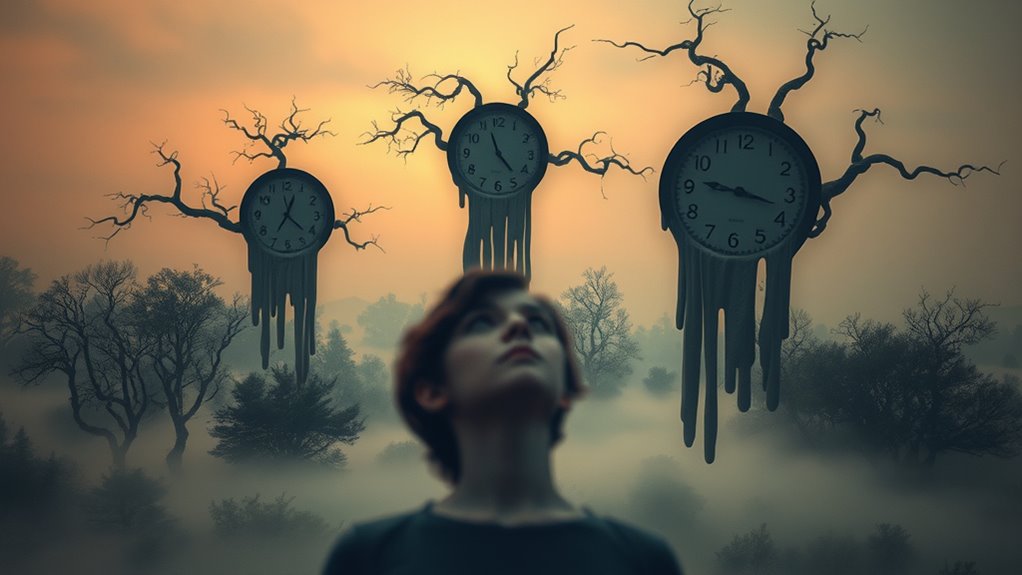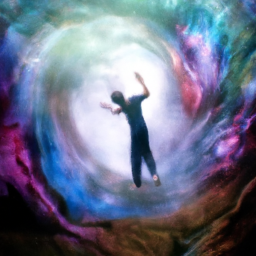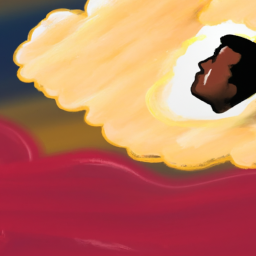In dreams, time often feels different—you might perceive hours passing in minutes or experience a single moment that seems like eternity. This distortion happens because your brain processes memories and activates repeatedly during REM sleep, creating a fluid sense of time. Dreams can stretch, compress, or feel infinite, depending on the stage of sleep and memory factors. If you keep exploring, you’ll discover how your mind uniquely manipulates time during your dreams.
Key Takeaways
- Dream perception of time can stretch, compress, or flow unpredictably, making durations feel much longer or shorter than actual time.
- REM sleep is linked to vivid dreams with rapid scene changes, which distort the sense of time.
- Memories processed during sleep can cause dreams to “expand” or “compress” events, altering perceived duration.
- Sleep cycles influence dream time perception, with REM stages generating more complex and time-fluid dreams.
- Overall, the brain’s handling of memories and sleep stages creates a subjective, flexible experience of time in dreams.

Many people wonder whether time feels different in dreams, and scientific research suggests it often does. When you dream, your perception of time can stretch, compress, or seem to flow unpredictably. This variation is partly linked to how your brain processes memories during sleep, especially how it consolidates dream memory. Unlike waking life, where time feels steady and linear, dreams often distort this sense. You might find yourself reliving events that seem to take hours, yet only last minutes in real time, or experiencing a single moment that feels like an eternity. These phenomena highlight how fluid and subjective your experience of time can be during dreams.
Dreams often distort time, making moments feel longer or shorter than they really are.
Understanding the relationship between dream memory and sleep cycles can shed light on this phenomenon. Your sleep is divided into multiple cycles, each lasting about 90 minutes, and includes stages like light sleep, deep sleep, and REM sleep. It’s during REM sleep—the phase most associated with vivid dreaming—that your brain is most active, and dream memory is most effectively formed and stored. When you wake up directly from a REM stage, you often recall detailed dream content, which can influence how you perceive the passage of time within those dreams. If you wake during a REM cycle, you might remember a dream that seemed to span hours, even though it only took minutes to dream.
The stages of sleep also impact how time feels in dreams. During deep sleep, or slow-wave sleep, your brain activity is minimal, and dreams are less frequent and less vivid. In contrast, REM sleep features rapid eye movements and heightened brain activity similar to wakefulness. It’s in REM that your mind constructs complex, story-like dreams, often filled with rapid shifts in scenes and characters. These shifts can make time seem distorted because your brain is rapidly associating different memories and ideas, creating a sense of a much longer or shorter experience than the actual duration. Additionally, the processing of memories during sleep influences how your brain constructs these time perceptions in dreams.
Furthermore, the way your brain consolidates memories during sleep influences your perception of time in dreams. Since your brain is selectively processing and integrating experiences, sometimes it “compresses” lengthy events into a brief dream segment, and other times it “expands” moments to give them more significance. The result is a dream experience where time feels elastic—sometimes fleeting, other times stretching out indefinitely. This flexibility in experiencing time highlights the mysterious ways your mind operates during sleep and dreams, making it clear that in the domain of dreams, time is anything but fixed.
Frequently Asked Questions
Can Dreams Last for Days or Weeks in Real Time?
Dreams can last for days or even weeks in your mind, but their actual duration in real time perception is much shorter. Usually, dream duration varies from seconds to a few minutes, though sometimes you might experience a dream that feels lengthy. Your brain compresses time during dreaming, so even if it seems like days pass inside, only minutes or less have gone by in real time.
Why Do Some Dreams Feel Like They Happen Instantly?
Dreamtime distortion makes some dreams feel like they happen instantly because your mind experiences temporal oddities, bending and blending moments seamlessly. You might perceive hours in a flash, as your subconscious weaves a story where time seems to slip away effortlessly. This rapid flow allows your brain to explore vivid scenes without the usual constraints, creating that surreal sensation of everything happening in the blink of an eye.
Is There a Way to Control Time Perception in Dreams?
Yes, you can control your perception of time through lucid dreaming by practicing time manipulation techniques. When you’re aware you’re dreaming, focus on slowing down or speeding up the scene to influence how long events feel. With consistent practice, you’ll develop better control over your dream environment, making it easier to stretch or compress time. This ability enhances your dreaming experience and helps you explore different perceptions of time within your dreams.
Do Different Sleep Stages Affect How Time Is Experienced?
Like a clock with shifting hands, your perception of time varies with sleep stages. During REM sleep, when lucid dreaming often occurs, time can feel stretched or compressed. Non-REM stages, involving deeper sleep cycles, tend to make time feel slower or more fragmented. As you progress through sleep cycles, your sense of time fluctuates, making dreams feel like minutes or hours, depending on the stage you’re in.
How Does Memory Influence Time Perception in Dreams?
You find that memory influences your time perception in dreams through lucid awareness and memory distortion. When you’re lucid, you can notice how your memories shape the dream’s timeline, often making it feel longer or shorter than it actually is. Memory distortion can cause you to misremember events or feel like time has sped up or slowed down, affecting how you perceive the duration of your dream experiences.
Conclusion
So, does time really work differently in dreams? Some scientists believe our brains compress or stretch time, making hours feel like minutes. While there’s no definitive answer, exploring this idea reveals how our minds craft vivid, surreal worlds where time bends and breaks. Maybe, in dreams, time isn’t fixed but fluid—giving you a glimpse into a universe where everything is possible. Next time you dream, consider: what if time is just another illusion?









